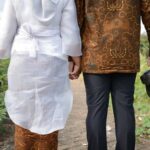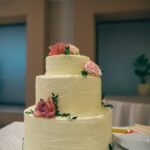What does black tie wedding mean? A black tie wedding is a formal event that requires guests to adhere to a specific dress code. In the world of formal events, black tie weddings hold a special significance, symbolizing elegance, sophistication, and tradition. From attire requirements to etiquette and decor, a black tie wedding sets the tone for an opulent and memorable celebration.
The concept of a black tie wedding has deep historical roots and has evolved over time in the context of weddings. Understanding the origins and evolution of black tie attire provides insight into its significance and meaning for modern-day weddings. As such, it is essential to explore not only the dress code expectations but also the etiquette, traditions, decor, and venue choices associated with black tie weddings.
As couples continue to put their own spin on traditional celebrations, modern interpretations of black tie weddings have emerged. These personalized touches reflect the evolution of societal norms while still maintaining the essence of sophistication and formality that defines a black tie wedding. By delving into these aspects, we can gain a deeper understanding of what makes a black tie wedding an exceptional and timeless occasion.
History of Black Tie Attire
Black tie attire, often associated with formal events and upscale occasions, has a rich history that dates back to the 19th century. The term “black tie” originated in the United Kingdom as a dress code for formal evening events, and it quickly gained popularity in high society circles.
Originally, black tie attire referred to a specific type of formal wear for men, typically consisting of a black dinner jacket or tuxedo, paired with matching trousers, a formal white shirt, and a black bowtie. Over time, the dress code expanded to include formal gowns and evening dresses for women, cementing its status as the epitome of elegance and sophistication.
In the context of weddings, black tie attire first became popular in the early 20th century among affluent families seeking to host grand celebrations. The trend quickly spread across society and became synonymous with opulent nuptial ceremonies.
As weddings evolved from intimate gatherings to elaborate affairs, the black tie dress code became an integral part of the event’s identity, signifying glamour and luxury. Today, black tie weddings continue to be favored by couples who wish to create an atmosphere of timeless elegance on their special day.
Below is a brief history of how black-tie attire has evolved in the context of weddings:
- 19th Century: Origins of Black Tie Attire
- Early 20th Century: Adoption of Black Tie Dress Code for Weddings
- Mid-20th Century: Popularity and Spread of Black Tie Weddings
- Present Day: Continued Significance of Black Tie Attire in Nuptial Celebrations
As black tie weddings have become increasingly popular over the years, understanding their historical significance provides valuable insight into their enduring appeal. This knowledge can help couples plan their ideal black tie wedding with a deeper appreciation for its traditions and cultural significance.
The Dress Code
A black tie wedding is an elegant and formal affair that requires guests to adhere to a specific dress code. For men, this means wearing a tuxedo with a black bowtie, a formal white shirt, and black dress shoes. Women attending a black tie wedding are expected to wear floor-length evening gowns or formal cocktail dresses. The attire for both men and women should be sophisticated and refined, in keeping with the formal nature of the event.
The significance of the dress code at a black tie wedding lies in its historical roots and association with upscale and glamorous events. Black tie attire originated in the 19th century as a more relaxed alternative to white tie dress code for formal events. Over time, it has become synonymous with sophistication and luxury, making it the perfect choice for couples who want to host an elegant affair on their wedding day.
When preparing to attend a black tie wedding, guests should take care to follow the specified dress code in order to show respect for the couple’s wishes and to contribute to the overall atmosphere of formality and elegance. In addition to selecting appropriate attire, guests should also consider their grooming and accessories, ensuring that they present themselves in a polished manner worthy of such an auspicious occasion.
| Black Tie Attire | Expectations |
|---|---|
| Tuxedo for Men | Floor-length gown or Formal cocktail dress for Women |
| Black Bowtie | Polished look including groom + accessories. |
Black Tie Wedding Etiquette
Attending a black tie wedding comes with certain expectations and responsibilities for both guests and the bridal party. Proper behavior and etiquette are crucial in ensuring that the event runs smoothly and that everyone has an enjoyable experience.
For guests, it is important to adhere to the dress code, arrive on time, and conduct oneself with grace and respect. The bridal party also plays a significant role in upholding the formality of the occasion, while hosts have their own set of responsibilities in ensuring that their guests have a memorable experience.
Guests attending a black tie wedding should adhere to the specific dress code, which typically requires men to wear tuxedos or formal suits, while women are expected to wear elegant evening gowns or cocktail dresses. It is essential for guests to RSVP in a timely manner and follow any other instructions provided by the couple regarding seating arrangements or special requests.
Additionally, proper etiquette includes being present during key moments of the reception, such as the first dance or toasts, as a sign of respect for the newlyweds.
The bridal party also has important responsibilities at a black tie wedding. Bridesmaids and groomsmen are expected to assist with various aspects of the celebration, including helping with any last-minute preparations, participating in traditional customs such as bouquet tosses or cake cutting, and ensuring that everything runs smoothly for the couple.
Furthermore, hosts of a black tie wedding must ensure that their guests feel comfortable and welcomed throughout the event. This includes providing adequate accommodations and amenities, as well as being attentive to their guests’ needs.
Ultimately, observing proper behavior and etiquette at a black tie wedding contributes to creating an atmosphere of sophistication and elegance that aligns with the formality of such an event. Guests who show respect for tradition and consideration for others contribute to making the day truly special for everyone involved.
Black Tie Wedding Decor
Black tie weddings are known for their elegant and sophisticated decor, creating a luxurious ambiance for the celebration. The color schemes and design elements chosen for black tie weddings play a significant role in setting the tone for the event and establishing a cohesive aesthetic throughout the venue.
Typically, the color scheme for a black tie wedding revolves around classic and timeless colors such as black, white, silver, gold, and navy. These colors exude an air of formality and opulence that is synonymous with black tie events.
In terms of design elements, black tie wedding decor often incorporates luxurious fabrics such as velvet, silk, and satin to add texture and depth to the overall look. Rich floral arrangements featuring blooms like roses, peonies, and orchids are commonly used to create lavish centerpieces and decorative accents. Candles and crystal chandeliers are also popular choices for adding a romantic glow to the venue.
When it comes to choosing specific decor elements for a black tie wedding, couples often opt for grandiose touches such as elaborate table settings with fine china, ornate silverware, and elegant glassware. Additionally, custom monograms or crests may be incorporated into signage or stationery to personalize the decor and infuse it with a sense of individuality.
Overall, the decor choices for a black tie wedding are aimed at creating an atmosphere of luxury and refinement that complements the formal dress code and overall ambiance of the event.
Black Tie Wedding Venues
When it comes to black tie weddings, the choice of venue is crucial in setting the tone for the event and creating a sense of elegance and sophistication. Many couples opt for venues that are steeped in history and glamour, such as grand ballrooms, historic estates, or upscale hotels. These types of venues provide the perfect backdrop for a formal affair, with their ornate architecture, luxurious interiors, and sophisticated ambiance.
Others may choose outdoor venues such as garden settings or waterfront locations for their black tie wedding. These picturesque settings can add a touch of romance and charm to the event while still maintaining an air of formality. Whether it’s an opulent indoor space or a stunning outdoor setting, the chosen venue should reflect the couple’s vision for their special day and provide a sense of grandeur befitting of a black tie affair.
In addition to the physical attributes of the venue, its location also plays a significant role in setting the tone for a black tie wedding. Whether it’s a cosmopolitan cityscape or a serene countryside backdrop, the location can add another layer of sophistication to the event. The accessibility and amenities offered by the venue are also important considerations for ensuring that guests have a seamless and elegant experience throughout the celebration.
Ultimately, the choice of venue for a black tie wedding is essential in creating an atmosphere of luxury and refinement. From lavish ballrooms to scenic outdoor settings, each venue offers its own unique charm and contributes to the overall ambiance of this formal affair. As couples continue to embrace this timeless tradition, they are seeking out venues that not only meet their aesthetic preferences but also embody the essence of sophistication synonymous with black tie weddings.
Black Tie Wedding Traditions
The First Dance
One of the most iconic traditions at a black tie wedding is the first dance. This tradition symbolizes the newlywed’s first dance as husband and wife, and it is often accompanied by a romantic song.
The first dance is a highly anticipated moment during the reception, and it holds great significance for the couple and their guests. It provides an opportunity for the newlyweds to showcase their love and commitment to each other, while also setting the tone for the rest of the evening’s festivities.
Toasts and Speeches
Another important tradition at a black tie wedding is the toasts and speeches. Typically, there are several key individuals who are invited to give a toast, including the best man, maid of honor, parents of the bride and groom, and sometimes even the couple themselves.
These heartfelt speeches offer words of advice, well-wishes, and anecdotes that highlight the special bond between the couple and their loved ones. The toasts serve as an opportunity for those closest to the bride and groom to express their love and support as they embark on this new chapter in their lives.
Cake Cutting Ceremony
The cake cutting ceremony is another cherished tradition at black tie weddings. This ritual symbolizes unity and the couple’s commitment to taking care of one another. The act of cutting and feeding each other a slice of cake demonstrates their willingness to provide for each other in marriage.
Furthermore, this tradition often signifies good luck for prosperity or fertility in some cultures. As such, this age-old practice has become integral not just to black-tie weddings but weddings altogether.
Modern Interpretations of Black Tie Weddings
In today’s society, more and more couples are embracing the concept of a black tie wedding but putting their own unique spin on this traditional formal event. While the classic elements of a black tie affair remain, couples are finding creative ways to incorporate personal touches and modern trends into their special day.
Personalized Details
One way that modern couples are infusing their personality into a black tie wedding is through personalized details. From custom monograms and signature cocktails to unique table settings and personalized favors, these small touches can make a big impact on the overall feel of the event. Whether it’s incorporating elements that reflect their shared interests or showcasing their cultural heritage, couples are finding ways to make their black tie wedding truly their own.
Non-Traditional Venues
While traditional ballrooms and grand estates have long been popular choices for black tie weddings, many modern couples are opting for non-traditional venues to host their formal affair. From art galleries and industrial warehouses to rooftop gardens and even private residences, these unique venues allow couples to create a one-of-a-kind atmosphere for their black tie wedding while still maintaining an air of elegance and sophistication.
Custom Attire Options
Another trend in modern interpretations of black tie weddings is custom attire options for both the bridal party and the guests. While the classic tuxedo and gown combination remains popular, some couples are encouraging guests to embrace alternative formal attire, such as sleek jumpsuits or tailored separates for women, and stylish velvet or patterned jackets for men. This allows guests to express their personal style while still adhering to the formal dress code of a black tie wedding.
Conclusion
In conclusion, the concept of a black tie wedding holds a significant place in the world of formal events. From its historical origins to its modern interpretations, black tie weddings have continued to be a symbol of sophistication and elegance. This tradition carries with it certain expectations for attire, behavior, decor, and venue choice, all of which contribute to creating a memorable and prestigious event.
The dress code for a black tie wedding is a crucial aspect that sets the tone for the entire affair. For men, this typically means wearing a tuxedo, while women are expected to don formal evening gowns or cocktail dresses. Understanding and adhering to these guidelines is essential for guests in order to honor the significance of the occasion.
As society continues to evolve, couples are finding new ways to infuse their personalities and preferences into the traditional black tie wedding. While maintaining the formality and grace of the event, modern interpretations allow for individuality and creativity in incorporating personal touches. Despite these changes, the essence of a black tie wedding remains rooted in timeless elegance and grandeur.
Overall, the allure of a black tie wedding lies in its ability to bring people together in celebration while upholding an atmosphere of refined sophistication. What does black tie wedding mean is more than just following a dress code; it represents an appreciation for tradition, elegance, and creating moments that will be cherished for years to come.
Frequently Asked Questions
What Does a Woman Wear to a Black Tie Wedding?
A woman should wear a formal floor-length gown to a black-tie wedding. This could be in a variety of colors and styles, but the key is to choose something elegant and sophisticated.
Can You Wear a Normal Suit to a Black Tie Event?
Technically, a normal suit is not considered appropriate for a black-tie event. Men are expected to wear tuxedos with a bow tie and women in formal gowns. However, in some less formal settings, a dark suit may be acceptable for men.
What Not to Wear to a Black Tie Wedding?
It’s important not to wear anything too casual or revealing to a black-tie wedding. This means avoiding short or casual dresses, jeans, t-shirts, or anything too flashy or attention-grabbing. The key is to dress elegantly and appropriately for the occasion.

Welcome to my blog about home and family. This blog is a place where I will share my thoughts, ideas, and experiences related to these important topics. I am a stay-at-home mom with two young children. I hope you enjoy reading it! and may find some helpful tips and ideas that will make your home and family life even better!





